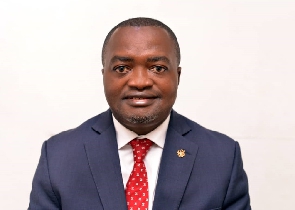The Member of Parliament for the Oforikrom Constituency in the Ashanti region, Dr. Emmanuel Marfo, has explained that parliament rejected the motion to absorb tertiary fees because it was against the constitution.
Member of Parliament for Bawku Central, Hon. Mahama Ayariga, filed a motion in parliament asking the Government to absorb fees of students in public tertiary institutions and to extend support to private universities for the 2021 academic year.
This motion was, however, voted against by parliament.
Speaking on the rationale behind the rejection, Dr. Emmanuel Marfo told Samuel Eshun on the Happy Morning Show: “We all understood that COVID-19 had an impact on people that is why Government put a lot of measures in place to help people to cope with the situation. However that does not mean that we must go against certain provisions clearly outlined in the constitution and implement it anyway. The constitution says every bill or motion that is likely to take some money from the country’s coffers, if not sponsored by the President or his representatives, must be stopped .This is because the governance of the country is run with budget and laws”.
He noted that Parliament is expected to approve budgets for Government policies and programmes and not to make laws that will burden Government’s budget. “So we do not entertain any motion that will introduce an amount or budget that has not already been budgeted for”, he added.
Meanwhile, Hon. Mahama Ayariga has reacted to the rejection of his motion to absorb tertiary fees by stating that he has been left in a state of shock after his motion was voted against by his colleague MPs.
Mahama Ayariga suggested that his motion was not to tell Government to pay all the fees of students. Rather, it was to encourage “efficiency and prudent management” in solving the problem.
General News of Friday, 5 February 2021
Source: happyghana.com













